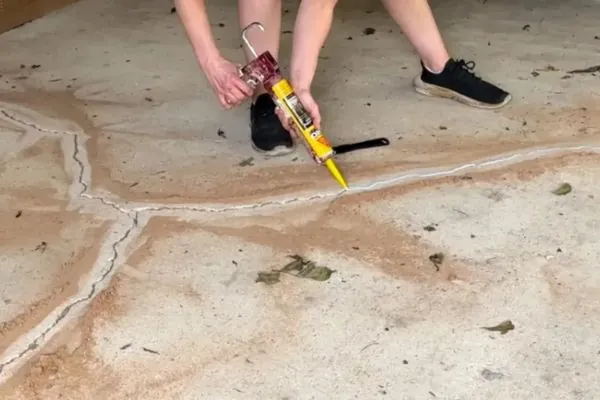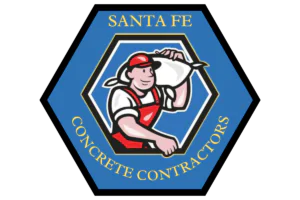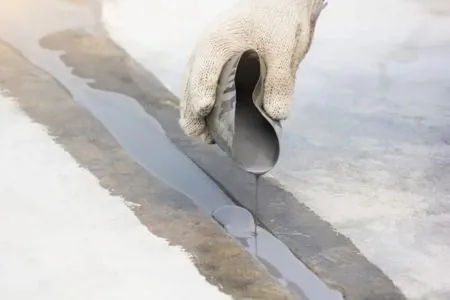Fixing cracks in concrete is essential for preserving the durability and appearance of driveways, sidewalks, and patios. Small cracks can quickly become more significant issues if ignored, leading to costly repairs. Knowing how to sealing cracks in concrete properly ensures long-lasting results.
Whether you are looking about Sealing Concrete Cracks or prevent further damage, choosing the right materials and techniques is key. Sealing cracks in driveway and other surfaces helps maintain their strength. Taking proactive steps now can save you from major repairs down the road.
Why Is Sealing Concrete Cracks Important?
Fixing cracks in concrete is essential for maintaining the longevity of your surfaces. Concrete repair by professional helps prevent these cracks from leading to more extensive damage and costly repairs when left untreated. By addressing them promptly, you not only protect your investment but also enhance the overall durability of your concrete.

The Impact of Cracks on Concrete Longevity
Cracks in your concrete can significantly impact its longevity, leading to costly repairs down the line. When left unsealed, these cracks can allow water, dirt, and debris to infiltrate the surface, worsening the damage. Additionally, freeze-thaw cycles can exacerbate the problem, creating larger cracks and structural issues. Sealing them promptly can help maintain your concrete’s integrity and extend its lifespan.
Preventing Further Damage and Costly Repairs
Ignoring small cracks in your driveway or patio can lead to more significant headaches down the road. Water can seep in, freeze, and expand, causing further damage. By sealing these cracks promptly, you maintain your concrete’s appearance and prevent costly repairs. Regular maintenance is key; it saves you time and money, ensuring your surfaces stay durable and safe for years to come.
Common Causes of Concrete Cracks in Driveways, Sidewalks, and Patios

Concrete cracks in your driveway, sidewalk, or patio can be frustrating, but understanding their common causes can help you prevent them. Weather changes, heavy loads, and water damage often contribute to these issues. By recognizing these triggers, you can take steps to protect your surfaces and maintain their integrity.
Weather and Temperature Changes
When you think about the surfaces around your home, weather, and temperature changes, play a significant role in their durability. Extreme heat can cause concrete to expand, while cold temperatures can lead to contraction. This constant shifting creates stress, resulting in cracks over time. Regularly sealing your concrete can help protect against these fluctuations and maintain the integrity of your driveways, sidewalks, and patios.
Heavy Loads and Improper Installation
Heavy loads and improper installation are two significant culprits behind cracks in driveways, sidewalks, and patios. Parking heavy vehicles consistently on concrete surfaces can lead to stress fractures. Additionally, poor installation techniques, like inadequate curing or insufficient reinforcement, can compromise the integrity of the concrete. Always guarantee proper installation and avoid overloading to maintain your surfaces’ durability.
Water Damage and Soil Movement
Exposed to moisture and shifting soil, your concrete surfaces can suffer significant damage over time. Water can seep into cracks, freeze, and expand, worsening the damage. Additionally, soil movement can create pressure on your concrete, leading to further cracking. To prevent these issues, guarantee proper drainage and consider reinforcing your foundation to minimize the impact of moisture and soil shifts.
How to Seal Cracks in Concrete: Step-by-Step Guide
When sealing cracks in concrete, you need to start with the proper sealant for your surface. Next, prepping the crack properly guarantees a strong bond and effective sealing. Finally, applying the sealant correctly will give you a long-lasting fix that protects your investment.

Choosing the Right Sealant for Your Concrete Surface
Selecting the proper sealant for your concrete surface is essential for effective crack repair and long-lasting protection. Consider factors like the sealant type, acrylic, epoxy, or polyurethane, as each has unique properties suited for different conditions. Check the weather resistance and flexibility, ensuring it matches your environment. Finally, choose a sealant compatible with your specific surface, whether a driveway, sidewalk, or patio.
Prepping the Crack for Effective Sealing
Prepping the crack properly before applying your chosen sealant is key to ensuring a successful repair. Clean the crack with a wire brush or vacuum to remove dirt and debris. Next, use a chisel to widen the crack slightly and create a stable base. Finally, let the area dry thoroughly before you proceed to seal it. Proper preparation will ensure things go smoothly, and your crack sealing will be as strong and effective as possible.
Applying the Sealant for a Long-Lasting Fix
Applying sealant to your concrete cracks is essential for a durable repair and helps slow the growth and spread of the cracks. Use a caulking gun to apply the sealant evenly into the crack. Fill it completely, smoothing the surface with a putty knife for a clean finish that reduces rough edges and sharp areas. Allow the adhesive to cure according to the manufacturer’s instructions, ensuring a long-lasting fix for your driveway, sidewalk, or patio.
What Are the Best Products for Fixing Cracks in Concrete?
Selecting the right product is crucial when sealing concrete cracks to ensure a durable repair. If you’re wondering how to seal cracks in concrete, small cracks can often be fixed using a concrete crack filler or sealant, while more significant gaps may require epoxy or polyurethane compounds. Sealing cracks in the driveway helps prevent further damage from weather and moisture. Always check product specifications for compatibility and follow instructions carefully to achieve the best results when you fix a crack in concrete.
Sealing Cracks in Driveways: What You Need to Know
When sealing cracks in the driveway, you’ll face unique challenges that require specific solutions. Understanding how often you should reseal can make a big difference in maintaining your driveway’s integrity. Let’s explore what you need to know to keep your driveway in top shape.
Specific Challenges of Driveway Crack Repairs
Epoxy concrete crack repair can pose several specific challenges that every homeowner should be aware of. The size and depth of cracks can vary greatly, affecting your choice of repair materials. Weather conditions can also impact the curing process, so timing is vital. Heavy vehicle traffic can also stress repairs, necessitating careful planning to guarantee a lasting fix. Make sure to address these factors for success.
How Often Should You Reseal Your Driveway?
Sealing your driveway is as important as repairing cracks, especially if you want to maintain its integrity over time. Depending on the climate and usage, you should reseal your driveway every 1 to 3 years. Regular resealing protects against water damage, UV rays, and stains. Watch for wear and tear to determine the best time for resealing.
Answers to Common Questions About Concrete Crack Sealing
1. How Long Does Sealed Concrete Last?
Concrete can last anywhere from five to ten years when adequately sealed before requiring maintenance or re-sealing. Factors like climate, usage, and the quality of the sealant can affect this lifespan. Regular inspections and timely repairs can help extend the life of your sealed concrete. If you notice wear or damage, addressing it early will save you time and money down the road.
2. Can I Seal Cracks in Concrete Myself or Should I Hire a Pro?
Many homeowners wonder if they can seal cracks in concrete themselves or if it’s better to hire a professional. If you are comfortable with DIY projects and have the right tools, you can definitely do it yourself. However, if the cracks are large or extensive or you lack experience, hiring a professional might save you time and guarantee a more durable repair.
Final Thoughts
Sealing concrete cracks is essential for maintaining the durability and aesthetics of your surfaces. Regular maintenance prevents further damage and enhances your property’s value. Whether you tackle it yourself or hire a pro, addressing these cracks promptly is vital. Do not wait until minor issues become costly repairs, act now to protect your concrete investments.
Protect your concrete surfaces from damage – seal those cracks today! Contact us and let’s get started now.






